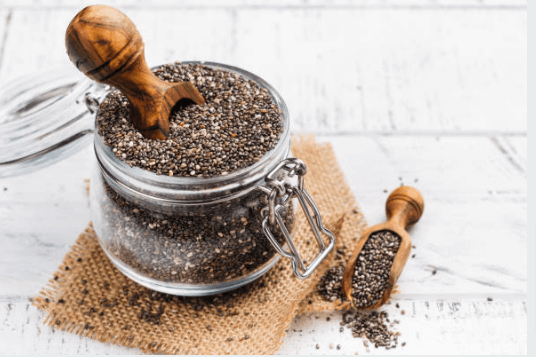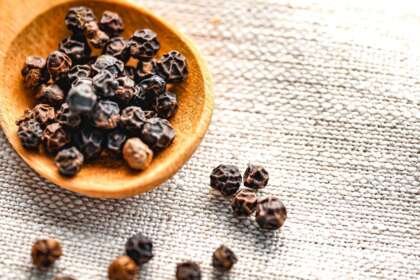Baked sweet potatoes, in particular, are one of the healthiest additions to any diet. Vitamins, minerals, antioxidants, and other plant chemicals found in abundance in these delectable tubers have been shown to have positive effects on health.
Incorporating baked sweet potatoes into your diet will provide you with numerous health benefits; read on to find out more.
Nutrient Profile
Sweet potatoes are high in many vitamins and minerals that are essential to health. Here is an overview:
- Vitamin A – More than 100 percent of the vitamin A RDI can be found in just one medium roasted sweet potato (about 114 grams). This essential component helps the body’s defense mechanisms, serves as an antioxidant, and promotes good vision and bright skin.
- Vitamin C – White blood cell formation is stimulated for immunity and collagen is made for youthful skin thanks to the vitamin C in a serving of baked sweet potato, which offers roughly 37% of the RDI.
- Potassium – Baked sweet potatoes, which contain 541 milligrams of potassium per serving, are a good source of this mineral that aids in blood pressure regulation, counteracts the effects of sodium, and avoids muscle cramps.
- Manganese – About 15% of the RDI for manganese can be found in sweet potatoes. Bone and metabolic health both benefit from manganese.
- Vitamin B6 – A medium roasted sweet potato will supply about 15% of your daily recommended intake of vitamin B6. Vitamin B6 helps with hormone regulation, brain growth, and immune system health.
- Vitamin K – One cooked sweet potato provides around 10% of the RDI for vitamin K, which is essential for normal blood coagulation.
- Copper – Copper, a mineral that boosts energy production and antioxidant status, can be found in tiny amounts in baked sweet potatoes.
Antioxidant Power
Antioxidant plant components found in sweet potatoes neutralize free radicals, protecting cells from injury. These are two examples of major antioxidants:
- Beta-carotene – Sweet potatoes get their vibrant orange color from a pigment called beta-carotene. This antioxidant is transformed into an effective form of vitamin A in the body, which helps the body better fight off infections.
- Anthocyanins – Sweet potato types with purple flesh contain anthocyanins. These antioxidants have been shown to reduce inflammation and may reduce cancer risks.
Immune System Ally
Sweet potatoes are a great food for boosting your immune system since they contain vitamins A and C as well as antioxidants like beta-carotene and anthocyanins.
Both vitamin A and vitamin C are crucial to healthy immune system function. T-cells, macrophages, and antibodies, your body’s first line of defense against pathogens, are produced at a higher rate after taking these supplements.
The antioxidants in sweet potatoes also prevent free radical damage to immunological cells. The best possible performance is enabled by this. Sweet potatoes may help you avoid bacterial and viral illnesses by providing your immune system with the fuel it needs to do its job.
Heart Health Booster
Sweet potatoes, with their excellent nutrient profile, help maintain heart health in a number of ways. By binding to bile acids in the digestive tract, the high fiber content aids in cholesterol reduction. Choline (a B vitamin), vitamin C, and potassium all contribute to lower blood pressure.
The anti-inflammatory anthocyanins in purple sweet potatoes may make them less dangerous to your heart.
Antioxidants like beta-carotene protect against LDL cholesterol oxidation and the subsequent development of arterial plaques.
Because of their multiple benefits, eating baked sweet potatoes is a great way to maintain healthy cardiovascular function.
Gut Health Aid
Sweet potatoes are good for your digestive system because they are high in fiber (4 grams per medium baked potato). The fiber serves as a prebiotic, or food for good bacteria in the digestive tract. It also promotes regular bowel movements by adding bulk to feces.
Additionally, antioxidants in sweet potatoes have been shown to reduce inflammation in the gut and alleviate colitis symptoms in animal tests.
Antioxidants also help restore a healthy bacterial balance in the stomach following antibiotic treatment. As a whole, eating more sweet potatoes improves your digestive system’s ability to absorb nutrients.
Blood Sugar Regulation
Baked sweet potatoes, despite their sugary taste, have a relatively low glycemic index of 44. This means the carbs are absorbed gradually, which is good for maintaining a steady blood sugar level. The blood sugar response is slowed and sustained energy is provided by the fiber content.
Because of these benefits, sweet potatoes are a great option for diabetics and those at risk for developing the disease.
Despite their sweetness, cooked sweet potatoes are not likely to result in unhealthful rises in blood sugar. They may also improve insulin sensitivity due to the minerals they contain.
Supports Healthy Vision
Sweet potatoes are great for your eyes since they contain so much vitamin A and beta-carotene. Eye and retinal pigments, which are essential for night vision, are formed in part by vitamin A. It may also help prevent age-related macular degeneration, a major contributor to visual impairment in the elderly.
The antioxidant properties of beta-carotene protect the eyes from the harmful effects of ultraviolet light and free radicals. Maintaining healthy eyesight into old age can be accomplished by eating plenty of sweet potatoes, which are rich in vitamin A and beta-carotene.
May Boost Brain Function
Sweet potatoes are a great food for the brain due to their high nutrient content. Minerals like potassium and manganese, as well as vitamins C and B6, are essential for healthy brain function. There is speculation that the anthocyanins found in purple sweet potatoes are especially good for the nervous system.
Experiments on animals showed an improvement in cognitive ability and a retardation of memory loss. They may prevent the oxidative damage to brain cells that contributes to cognitive decline with age due to their antioxidant and anti-inflammatory properties.
Adding sweet potatoes to your diet may help improve your cognitive abilities, though more studies are needed to confirm this.
Supports Exercise Performance
If you’re an active person, baking some sweet potatoes is a good option. They’re great for snacking on before or after a workout to keep you going strong and speed up the healing process.
Their carbohydrate content is a useful source of energy. Potassium is essential for proper fluid balance. Vitamin C is useful for post-workout tissue regeneration. And collagen formation from manganese aids in healthy bones and joints.
The sustained release of glucose from sweet potatoes makes them a great food choice for fueling a marathon or a long hike. They supply reliable energy that can be used to sustain prolonged effort.
Tips for Preparing and Serving Baked Sweet Potatoes
- Choose firm, smooth sweet potatoes without wrinkles, bruises, breaks, or mold. Store in a cool, dark place for up to 2 weeks.
- Scrub them thoroughly before baking to remove dirt. Poke holes with a fork to allow steam to escape and prevent bursting.
- Bake at 400°F for 45-60 minutes until easily pierced with a fork. The skin will be crinkly.
- Top with butter, cinnamon, Greek yogurt, cheese, beans, nuts, salsa – get creative!
- Refrigerate leftovers within 2 hours of baking. Consume within 5 days. Reheat in microwave or oven until hot.
Easy, Nutritious, and Delicious
Simply baking sweet potatoes brings forth their entire nutritional potential.
Their high concentrations of beneficial nutrients like vitamins, minerals, and antioxidants have wide-ranging positive effects on health, from boosting immunity and cardiovascular wellness to enhancing mental clarity.
Their high fiber content promotes consistent bowel movements and steady blood sugar levels. While they are low in calories, sweet potatoes are incredibly filling.
Even though orange-fleshed sweet potatoes are the norm, you shouldn’t be afraid to branch out and try other colors.
Despite wide variations in appearance, all parts of the fruit are nutritionally and medically valuable.
Eat more sweet potatoes to benefit your health. Make sure to bake them instead than deep-frying or serving them doused in sweet sauces.












